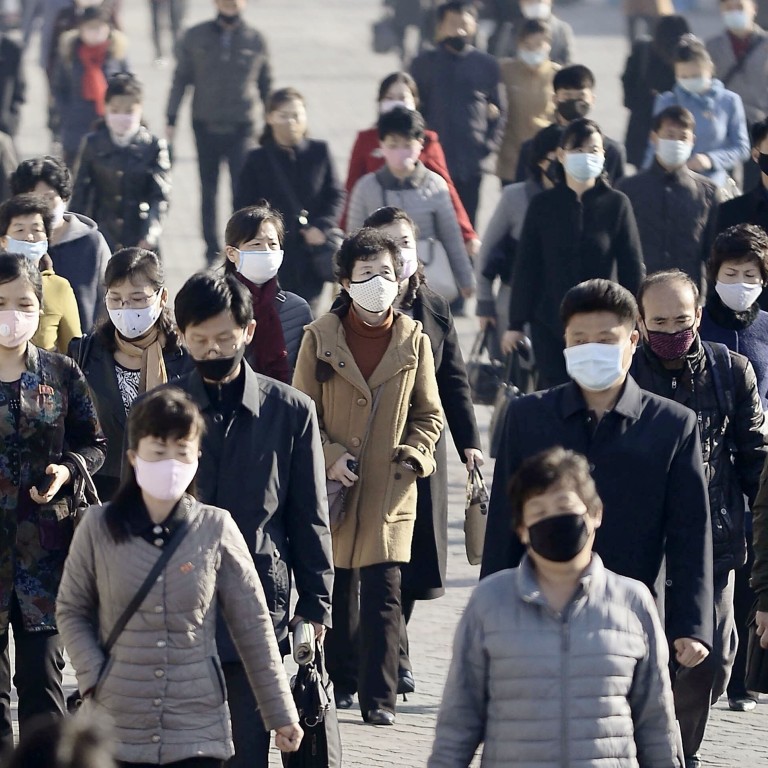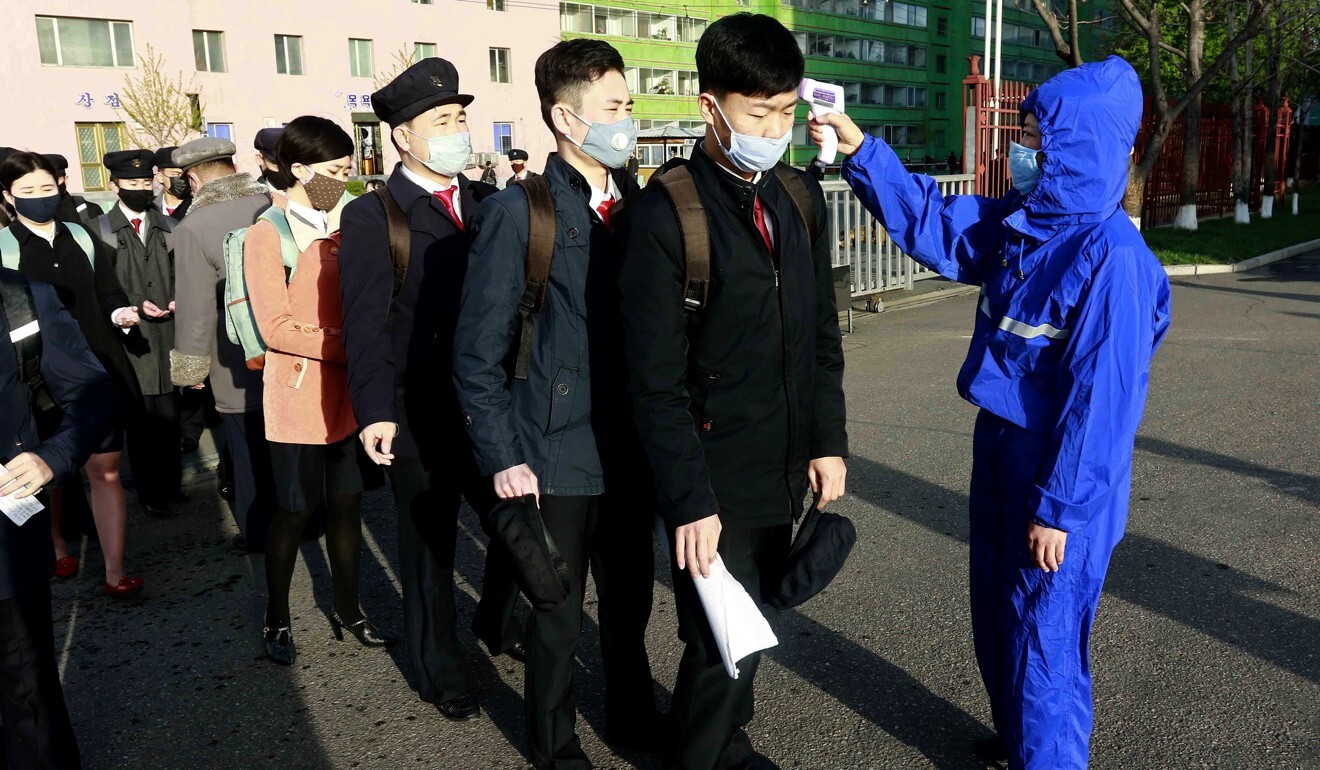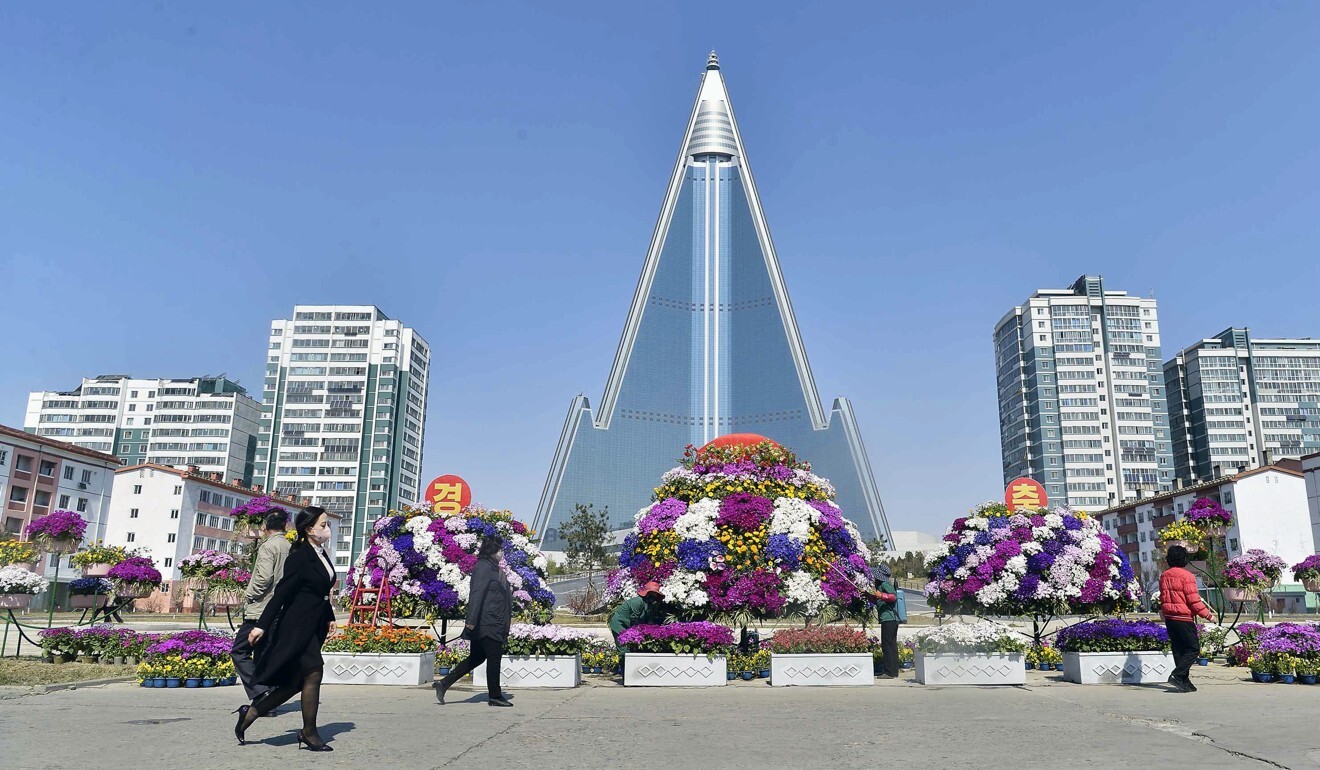
Coronavirus: panic buying of food staples in Pyongyang, as North Korea insists it has no cases
- Food prices in North Korea are reportedly rising sharply because of panic buying, but this is not related to reports that leader Kim Jong-un is ill
- North Korea has told the World Health Organisation it has tested 740 people for Covid-19 and released 25,139 from quarantine, and all were negative
Shortages were initially limited to imported fruit and vegetables and then moved on to other goods, it said.

Radio Free Asia also reported last week that the prices of food staples in North Korea were rising sharply because of panic buying.
North Korea closed its borders in January when coronavirus cases in neighbouring China began to skyrocket. It also banned foreign tourists, intensified screening and mobilised health workers to monitor residents and isolate those with symptoms.
The US said it is “fairly certain” North Korea has cases because of a noticeable lack of military activity, General Robert Abrams, commander of US Forces Korea, told reporters in a teleconference briefing in March.
North Korea told the World Health Organisation it tested 740 people for Covid-19 as of April 17 but that all came out negative. It also said it has so far released 25,139 people from quarantine since December 31, according to Edwin Salvador, WHO’s representative to North Korea.

Salvador said North Korea’s health ministry has been sharing weekly updates with the WHO on its
anti-virus efforts, and the WHO is engaging with North Korea’s government to bring in the anti-virus supplies, including protective gear and laboratory reagents, from the Chinese border town of Dandong.
North Korea is currently bringing in all outside supplies, including Covid-19 related, by ship through Nampo port as all borders remain closed. Goods received are disinfected and quarantined in the port for 10 days. They are additionally disinfected and quarantined for another four days if headed for capital Pyongyang.
Doubts abound over North Korea’s claim of zero virus cases
Food shortages are common in North Korea, which is one of the world’s poorest states. In the 1990s, a famine killed as much as 10 per cent of the population, according to some estimates.
The virus could make things worse. The United Nations’ World Food Programme warned this week that economic hardship caused by the pandemic may lead to starvation in the developing world. The WFP, which has operations in North Korea, has said about 40 per cent of the population is undernourished, adding “food insecurity and malnutrition are widespread”.
Kim was conspicuously absent from birthday celebrations on April 15 of his grandfather and state founder Kim Il-sung. He has not been seen since a politburo meeting on April 11, raising speculation about his condition.
The state-run Korean Central News Agency reported that Kim on Wednesday sent a message to Syrian President Bashar al-Assad. Letters of this sort are reported frequently.
Is Kim Jong-un ill? Reports shine light on North Korea’s rumour mill
US officials said on Monday they were told Kim was in critical condition after undergoing cardiovascular surgery last week and they were unsure of his current health. Meanwhile, South Korean President Moon Jae-in’s office said that Kim was conducting “normal activities” in a rural part of the country assisted by close aides and no special movements were detected.
The health of North Korea’s leader is one of the most closely guarded secrets in the isolated state, known only to a few people in its inner circle. US President Donald Trump said on Tuesday he does not know about Kim’s health, adding that he might reach out to check on him.
General John Hyten, the vice-chairman of the US Joint Chiefs of Staff, said in Washington on Wednesday he could not confirm or deny the reports. “I assume that Kim Jong-un is still in full control of the Korean nuclear forces and the Korean military forces. I have no reason not to assume that,” he said.


